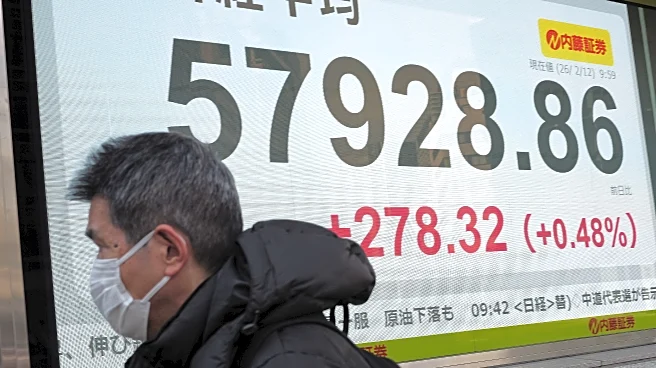What's Happening?
Starbucks has announced a strategic partnership with Boyu Capital to form a joint venture aimed at operating its stores in China. Under the agreement, Boyu Capital will acquire a 60% stake in Starbucks'
China business for $4 billion, while Starbucks retains a 40% interest. This move comes as Starbucks seeks to leverage Boyu Capital's local expertise to expand its presence in China, where it currently operates approximately 8,000 locations. The deal, which values Starbucks' China operations at over $13 billion, is expected to close in the second quarter of fiscal 2026, pending regulatory approval. Starbucks has faced challenges in China due to increased competition and economic slowdowns, prompting the need for strategic partnerships to maintain its market position.
Why It's Important?
The joint venture with Boyu Capital is significant for Starbucks as it aims to strengthen its foothold in China, its second-largest market after the United States. The partnership is expected to help Starbucks navigate the competitive landscape in China, where local rivals like Luckin Coffee have gained market share with lower-priced offerings. By collaborating with Boyu Capital, Starbucks hopes to tap into new growth opportunities, particularly in smaller cities, and counteract recent declines in sales and profits. This move reflects a broader trend among U.S. companies seeking local partnerships to adapt to China's evolving market dynamics and economic conditions.
What's Next?
The completion of the joint venture is contingent upon regulatory approval, which is anticipated by the second quarter of fiscal 2026. Once finalized, Starbucks and Boyu Capital will focus on expanding the brand's presence in China, potentially increasing the number of locations to 20,000 or more. The partnership may also lead to new strategies to enhance customer engagement and compete more effectively with local coffee brands. Stakeholders will be closely monitoring the venture's impact on Starbucks' financial performance and its ability to regain market share in China.












